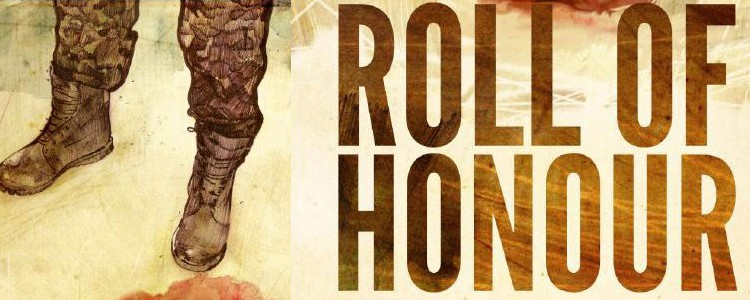“Roll of Honour”, Amandeep Sandhu, a few comments
16 Sept 2012
Earlier in the year Amandeep wrote to me requesting me to read his manuscript. Now that the book has been published with his permission I am sharing some of the comments I made on the draft I read.
**********
First things first. Your novel, Roll of Honour, IMHO is going to break new ground for English-language fiction from India. It is a combination of YA, cross-over, a bildungsroman and a very disturbing account of adolescence. Is it also a part-memoir? If I may say so, you have achieved something that I have only seen in Chinese, Japanese and French literature. I am as yet to see it in Indian fiction. You said you wanted to attempt the grittiness to show, and it does. It is very readable and flows well.
You have worked hard at the research and I suspect, raking up old and buried (at times, painful) memories. It is not easy to write the kind of stuff that you have written. First in the present tense and then in the past continuous, reflecting upon what you did. It is as if you split yourself into two.
I am not sure if you know this, but when victims of any traumatic encounter, especially those of conflict zones have to recount the actual moment of horror, are never able to do so in the first person. It is always in the third person, as if that particular moment of impact is too dreadful to recall. The brain blocks it out and memory softens the blow. Whereas in your case, you have tortured yourself to write as is. Remarkable! Having said this, have you read Howard Zinn and Paul Fussell on conflict, especially WWII. Why I mention it is, you are talking about violence and horror that is very similar to what they have tried to document. Through the eyes of the common man and the inordinate pressures, and circumstances they have to face.
Roll of Honour is a very tough book. Yet it is extraordinary for you having highlighted the very common, everyday occurrence in a boarding school, especially a military school. The pressures of society. The pressures of living in the early 1980s in Punjab. Your novel brought back many memories for me of the 1980s, the violence that we saw and read in the papers, the horror of the 1984 riots, etc etc.
For me, Roll of Honour is a neat bildungsroman. Ever since I read it, it has been swirling in my head. You are doing something that is well documented in literature. It takes at least a generational gap for a major socio-political event to make its mark in literature. It takes time, primarily because immediately after the event, people who have witnessed it, prefer to block it in their minds. A generation later the questions begin to emerge, research develops and oral history begins to be recorded. It is time for 1984. It is time for Punjab.
For me this novel works well as for the YA genre. You have created Appu as a trapped teenager, who is confused by his school, the choices he has to make, the social changes etc. For a teenager, the raging hormones are a nightmare. To top it, the horror of the school, witnessing the crumbling of society as you know it and more importantly, the very foundations on which you have been brought up being challenged – the sacrosanct Golden Temple being stormed; the idea of fighting for the country, but having to experience military school; the dissonance in what is taught to what is expected of you. … (With this book) you are doing something very original.
*********



3 Comments